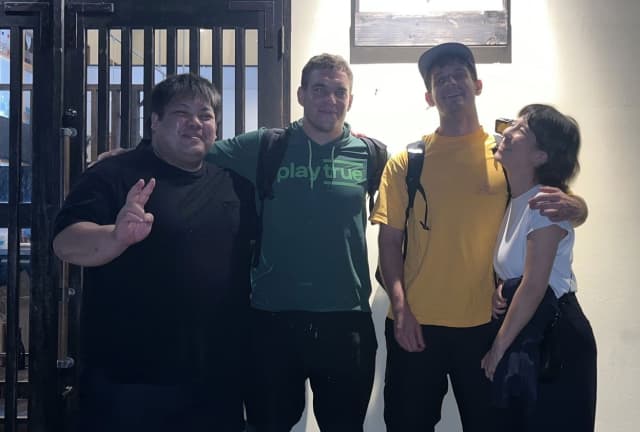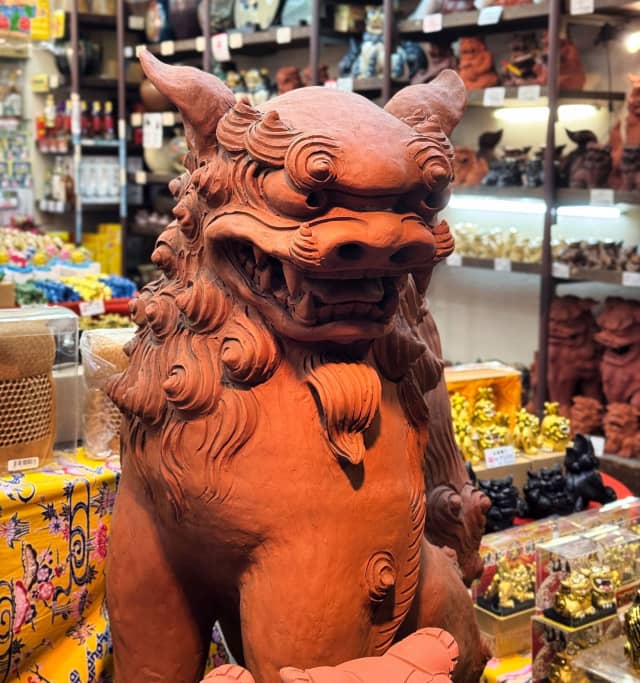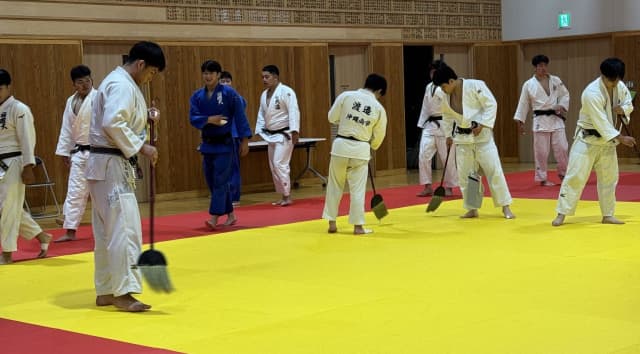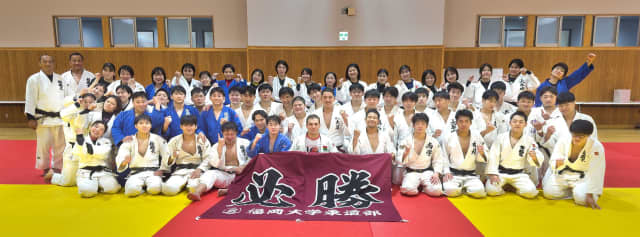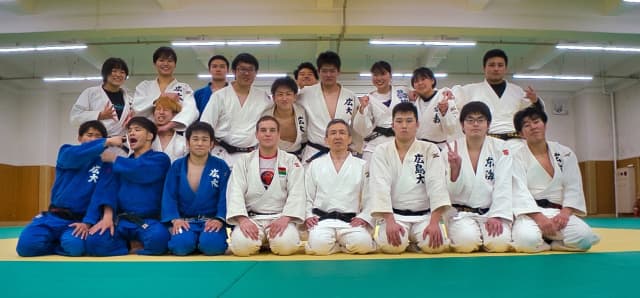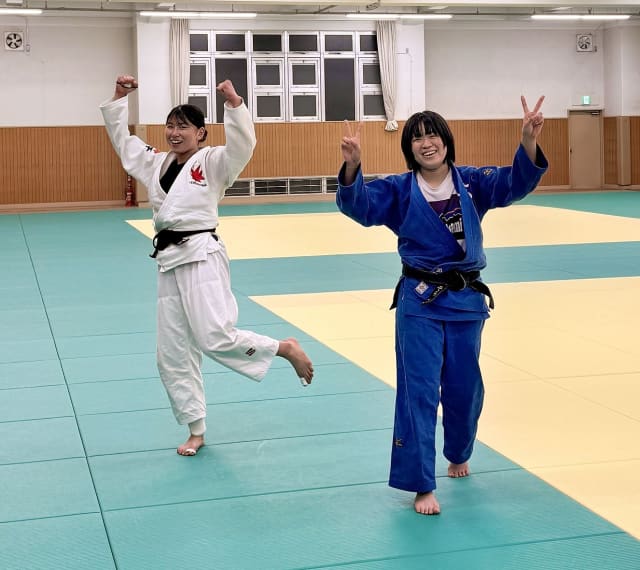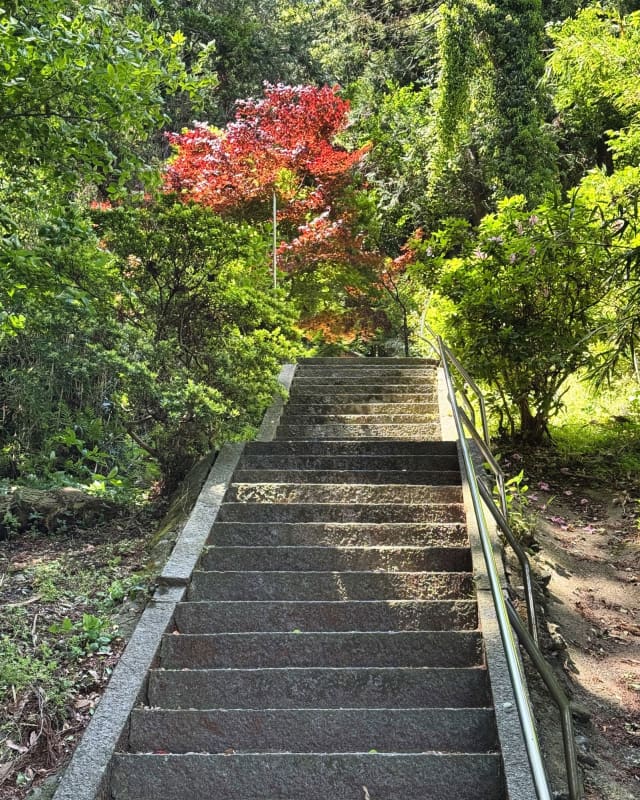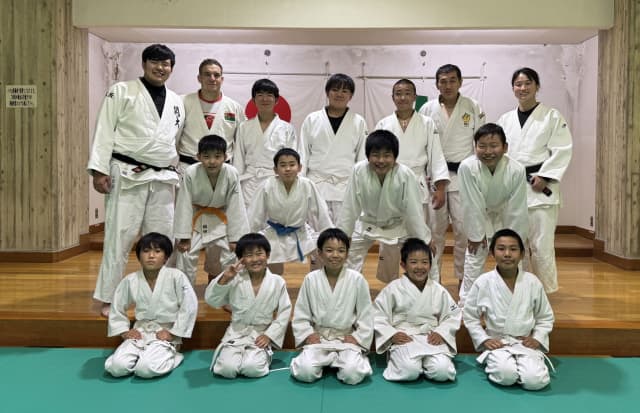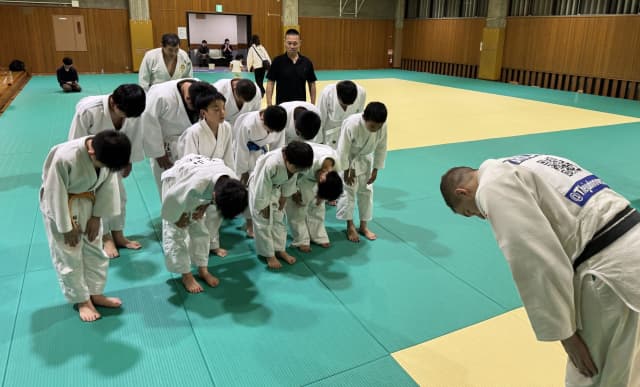"I’ve now arrived in Japan, my 48th country in 4 years and after travelling tens of thousands of kilometres. I'm back in the home of judo, in a country I once called home too. Indeed, Japan holds a special place in my heart as I already spent several years in the country some years ago, so I decided to double my efforts here by creating a challenge within the challenge: to do judo in all 8 regions of Japan.
I arrived from Busan, South Korea, about a month ago and stepped into Okinawa first, an island that almost feels like a different country altogether. Thanks to existing contacts, I could prepare a bit beforehand. One of them, a fellow French judoka I had once shared the tatami with both in France and Japan, is now working on organising judo trips for foreigners in Japan. If you are interested, feel free to search for Tanguy Sensei on social media! Through him, I got in touch with Baptiste, another French judoka living in Okinawa, who introduced me to Okinawa Naha Nishi High School.
Returning to a Japanese dojo felt amazing. I had missed that atmosphere deeply. Here, I decided to always train first, without my camera, just to practise and introduce myself.
I was welcomed warmly and the sensei even asked me to teach some techniques he saw me doing. It may not have been a famous dojo but the technical level of the students was truly impressive. Okinawa is better known for its beaches but I didn’t go as travelling through Japan is expensive and since I’m not teaching here, I don’t receive donations. So I moved on quickly to save money.
Next was Kyushu, still in the same region; I flew to Fukuoka. The Sensei from Okinawa connected me with the coach at Fukuoka University, a powerhouse on the national judo scene. This is also the university of Ryū Shichinohe, one of Teddy Riner’s most well-known opponents. Once again, I felt very welcome. The Sensei explained to the students that I was not here as a competitor but as a coach coming to learn, so they were very considerate during randori. I also joined their women’s team, which includes some international medallists.
It was soon time for my second region: Chugoku and the city of Hiroshima. As I share my journey on YouTube, I also aim to highlight Japanese culture and of course I had to reflect on the tragic events of World War II. Visiting Hiroshima was a powerful, emotional experience, a mix of horror and awe at the city’s revival.
I trained at Hiroshima University, a smaller judo team focused more on academics. There I met sensei Deguchi, a former national coach with deep experience and multi-lingual skills. One of his assistant coaches supported me during my visit and I was even invited to join the team at a regional competition that weekend. It was incredible to experience a local competition as part of a Japanese team.
I kept a fast pace in the beginning, roughly one region per week, because I planned to stay longer in the judo-strong regions later. So I headed to Matsuyama, in the Shikoku region (Ehime Prefecture). During a competition, a curious sensei asked what I was doing there. He turned out to be the coach from Matsuyama and kindly invited me to visit his dojo. I misunderstood and went straight to the university, arriving a bit late, only to discover it was one of the oldest dojos in the world, built in 1888. There I met Hamada sensei, an 8th dan who runs the dojo in a traditional yet very welcoming way. I wished I could have stayed longer, he had so much to teach. He even invited me to his home for a meal and that’s where I discovered through photos that he was a former coach of Ryoko Tani, among many other incredible achievements.
Next came my fourth region: Kansai, home to Osaka, Kobe, Kyoto and of course, the legendary Tenri University, which I’ll try to visit! In Osaka, I began at the Kodokan, not the Tokyo one though, there's also a Kodokan here! It's a more modern building, around 30 years old, and it helped me make new connections.
A YouTuber known as Fluid Judo Japan kindly helped me organise a seminar with Mijukyo Judo Club, which was a huge honour. There I met and taught a group of young judoka. I admit I was nervous, teaching children can be harder than teaching adults, but everything went smoothly and the teacher was generous enough to offer support for the project.
This month has been intense. I’ve moved fast, lived simply and adapted to a different rhythm, not teaching as much, but being much more active on social media and YouTube, as there's so much global interest in Japan. Financially, it’s been challenging though. I spent over $2,000 in my first month while earning under $1,000 but I’m hopeful that the growing interest will help bring new donors and sponsors on board.
Still, it’s an incredible experience to be back in Japan. I hope the next two months will go just as well and I’m starting to think that I’d like to come back every year to learn more about judo and to keep building bridges through this beautiful art.
Thank you for reading and for supporting the Judo Nomad project! Let’s keep growing the global judo family together!

